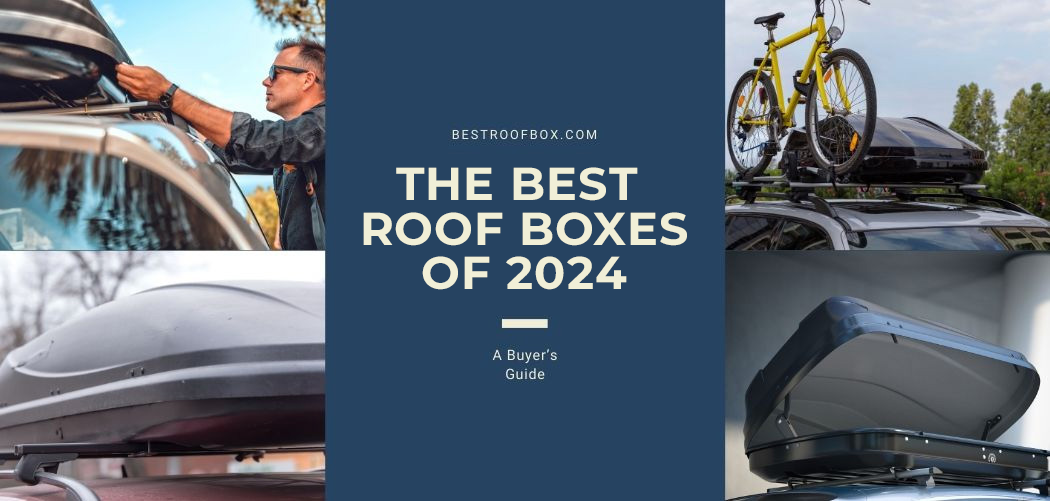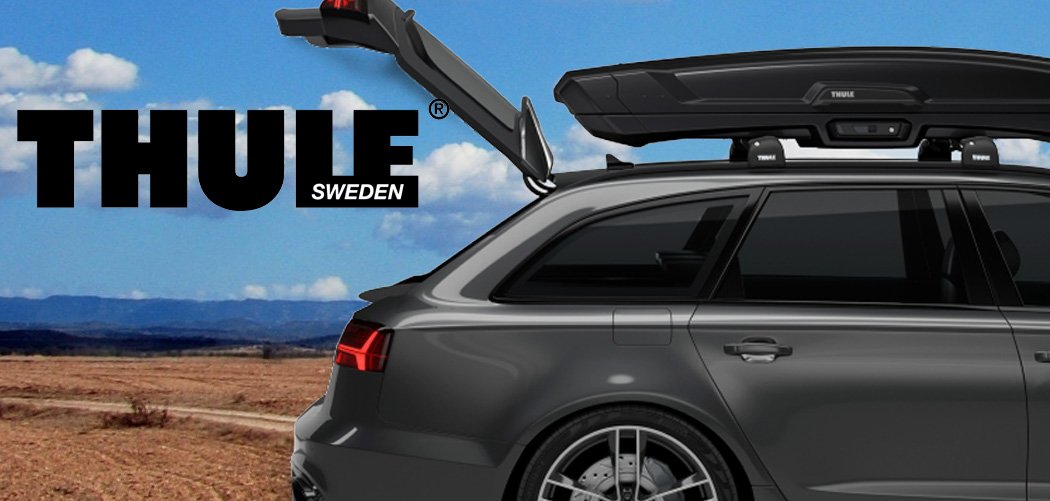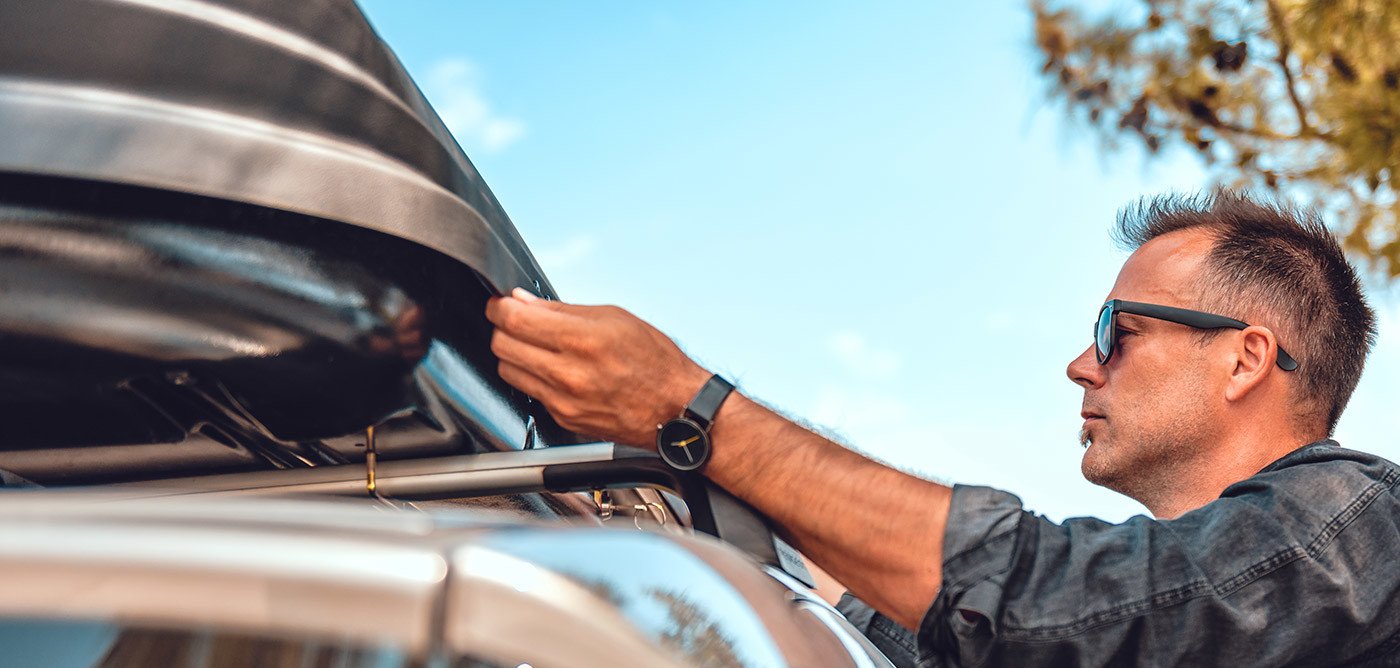Roof box or roof bag? Do you need help deciding?
One of the most important things that is on your mind when you are planning a long travel trip is making sure that you have enough room for everything in your car.
Nobody wants to plan the perfect vacation across the country, only to realize that the car only has enough space for a fraction of everything you need to bring.

With that being said, you always have the option of going for an extra storage at the top of your car. The question now is, which is better, a roof box or roof bag?
In a nutshell, the verdict is clear: Roof boxes take the lead! Yes, they come with a higher price tag but they also offer durability, security and polished appearance, which is pretty good for a long-term investment.
The only time you’ll prefer roof bags are if you’re on a tight budget and really requires an extra space for your trip. Don’t get me wrong, roof bags are good investment as well but sooner or later you will find yourself needing for an upgrade and will eventually settle for a roof box.
Table of Contents
Roof Box: More Storage, Less Cash – A Pricier Pick
The first type of rooftop carrier is the hard ones. As the name suggest, these carriers are defined by their secure, hard outer shell that protects the belongings inside of the carrier. Hard rooftop carriers are what you should be looking at if durability and security are a priority for you. After all, hard rooftop carriers have the option to have locks installed, meaning that as long as you keep the key somewhere secure, it will be safe and your belongings can only be accessed by you.
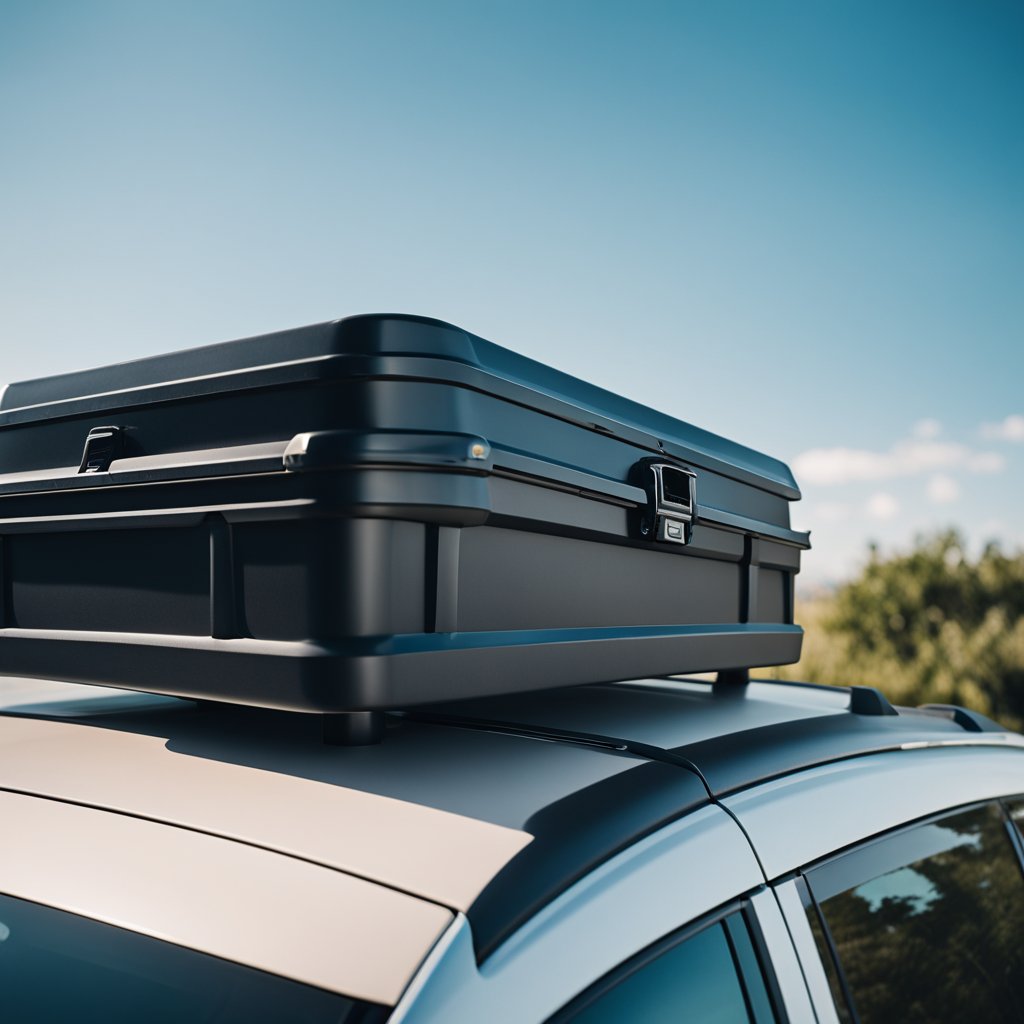
What Makes Them Good
In addition to this, the durability of the hard outer shell is enough that you will find that these rooftop carriers can last for years of traveling before they truly show signs of wear and tear.
Hard rooftop carriers can come in all different sizes, ranging from 11 cubic feet of space to 22 cubic feet of space. However, no matter how much space a hard rooftop carrier can provide, the load limits are usually the same, around 165 pounds.
The only thing that changes between the sizes is typically the measurements, which can affect your ability to store items such as skis and snowboards. This is important to note if you are using your rooftop carrier to store items that don’t easily fit in your trunk, rather than looking for more space in general.
The best hard rooftop carrier you can consider is the line of Thule Force XT cargo boxes. Not only does their size range from accommodating relatively small cars to large vans, but the carriers themselves can hold well over 150 pounds. This model of rooftop carrier is lighter than previous versions, which is important when you consider how much weight the roof of your car can support. And finally, these rooftop carriers allow you to lock the carrier itself for maximum security.
Be sure to check out our Roof Cargo Box Buyers Guides to help you find the perfect Hard box for your car.
The Tradeoff...
All rooftop carriers are going to run into shortcomings, even the best ones. The biggest issue with these carriers is going to be the price. For the incredible durability and security that these carriers provide, you quite literally pay the price. These carriers cost hundreds of dollars, with the largest size of carrier costing just over 1,000 dollars. Of course, if you plan to dedicate much of your time to traveling, this investment will eventually pay itself off, but it is not a small investment to make in the first place.
This is especially the case if you have to install roof racks so that you can have such a rooftop carrier in the first place. Almost all hard rooftop carriers need to be installed on roof racks. Some modern, large cars will come with roof racks installed, particularly if those cars are meant to be used for cross-country travel. However, most other cars will not have these racks installed. This will mean that you have to factor in the time for looking at the best racks to install, while also considering the total amount of money that you will have to spend for those racks in addition to the hard rooftop carrier.
This is a shortcoming that you will find across all hard rooftop carriers, and not just the best ones. Although many people consider it worth it to have such a durable and secure rooftop carrier, there are also many people who might not enjoy spending such money on a rooftop carrier, rather than the destination of the trip being planned. This will be something to consider if you are skeptical about how much use you will actually get out of the rooftop carrier.
Roof Bags: Flexible Storage, Durability Not So!
The second and final type of rooftop carrier is the soft version of carriers. These carriers do not have an outer shell to protect luggage against rocks and pebbles that other cars might bring up, but they do boast flexibility that hard rooftop carriers simply cannot provide. Soft rooftop carriers are often made with a special type of weatherproof and waterproof fabric that will keep all of your belongings in place while you make your journey.
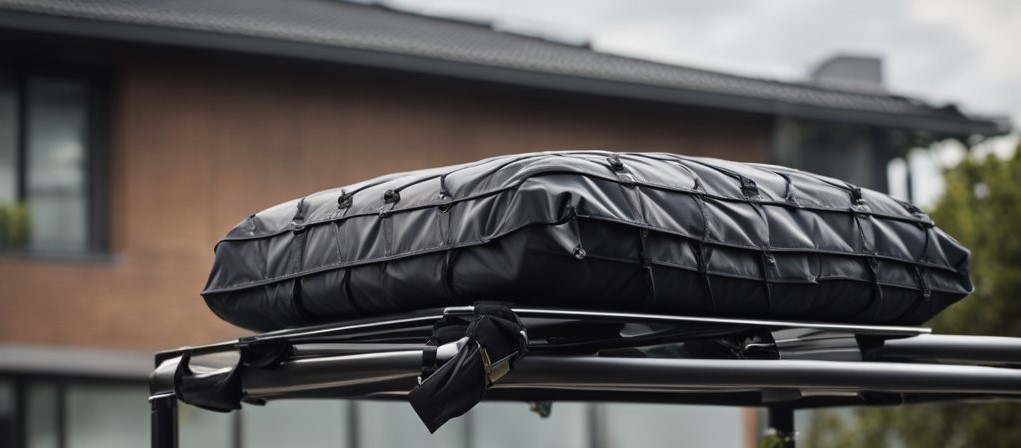
The Good News
This flexibility might allow you to store items in a more haphazard way than hard rooftop carriers would allow, which is perfect for people who do not want to spend a good portion of the day rearranging belongings so that everything fits perfectly.
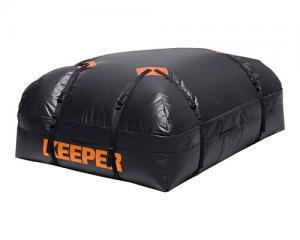 Soft rooftop carriers give you the opportunity to save an enormous amount of time and money when it comes to the installation and investment in the carrier itself. Not only do these carriers almost always cost less than 100 dollars, but they also do not require anything on your car to be installed.
Soft rooftop carriers give you the opportunity to save an enormous amount of time and money when it comes to the installation and investment in the carrier itself. Not only do these carriers almost always cost less than 100 dollars, but they also do not require anything on your car to be installed.
Most soft rooftop carriers have a variety of options for installation, meaning that they will attach to your car regardless of whether or not it has racks on the roof.
Sometimes, all you have to do is strap the carrier in, and you will be ready to begin your journey. This means that you can save hundreds, or potentially even a thousand dollars on your rooftop carrier, while also saving the time and frustration of trying to find and install roof racks onto your car.
This is especially important to note if you do not plan on making a lot of trips with your rooftop carrier and only need it for a few specific occasions, as nobody wants to go through the trouble of installing items that will only be used once or twice.
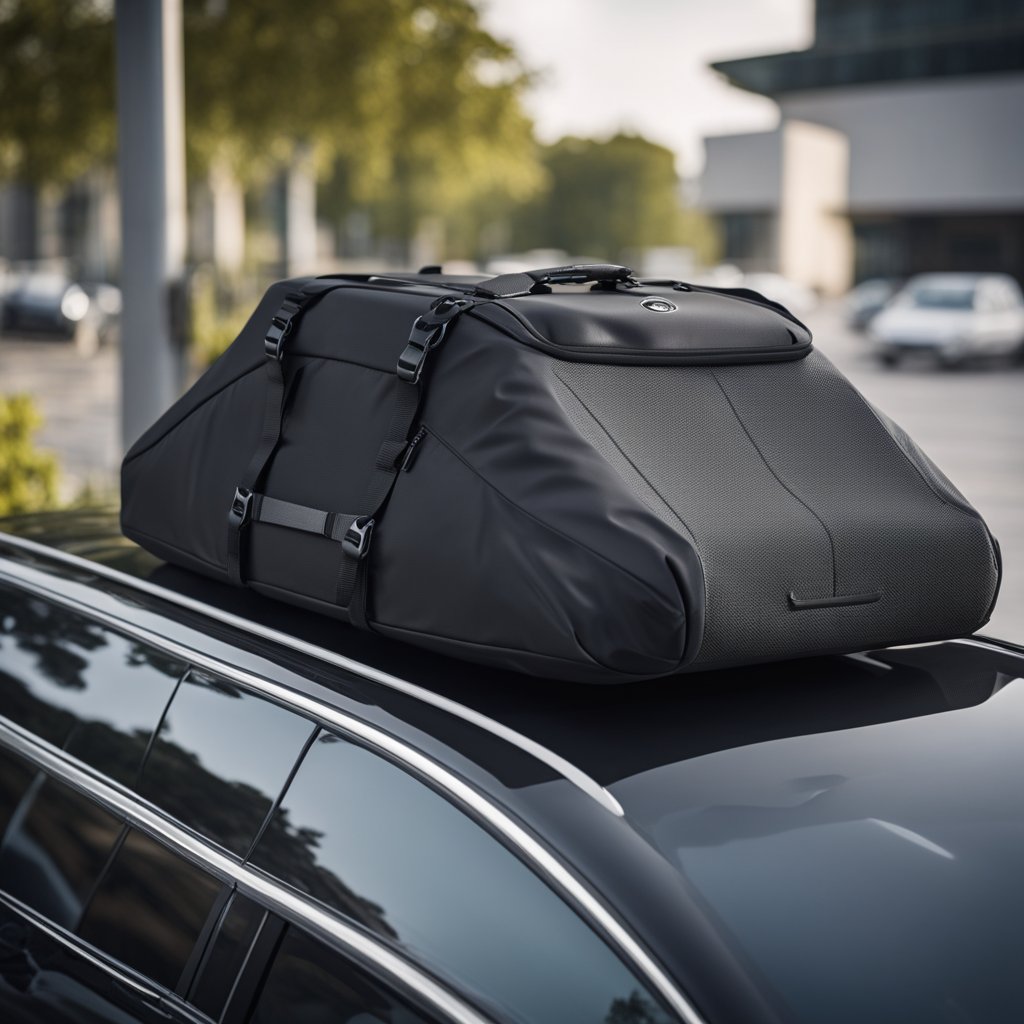
Some people might think that soft rooftop carriers have to be smaller to safely hold everything you want to pack, but this is not entirely the case. Depending on the brand of rooftop carrier you look at, you will be able to get one of two sizes of carrier. Smaller cars will get an 11 cubic foot carrier, which is just about standard for smaller cars.
Larger cars, such as vans and SUVs will get a 15 cubic foot carrier, which is slightly smaller than the hard counterparts, but it is more than enough space of a number of suitcases and carry-on bags. No matter what size your car is, you will still have more than enough space needed to bring all of your belongings to your destination without anyone feeling cramped in the process.
As for the best rooftop cargo carrier of this category, you will want to look toward the RoofBag Waterproof line of soft rooftop carriers. These come in two sizes, in two versions. There is an 11 cubic foot and a 15 cubic foot option, and these two sizes can come in either standard or premium form. This gives you enough choice to pick out the perfect rooftop carrier for your car, without having to stress about it. These carriers are waterproof, weatherproof, and incredibly easy to install. Before you know it, you can simply attach this to your car, load it up, and you will be ready to go wherever you want to go.
Be sure to check out our Guide to Soft Roof Cargo Boxes.
The Tradeoff...
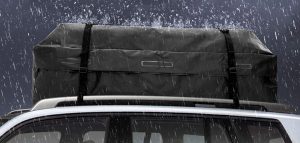 Considering the extreme price difference between this type of carrier and the hard variants, it becomes obvious that there is a shortcoming somewhere. The shortcoming of the soft rooftop carriers comes in both durability and security.
Considering the extreme price difference between this type of carrier and the hard variants, it becomes obvious that there is a shortcoming somewhere. The shortcoming of the soft rooftop carriers comes in both durability and security.
First of all, the security of these carriers is something to consider, as they often close with a combination of straps and zippers. If someone is up to no good and your car isn’t properly protected, you may well not have any luggage to worry about when you wake up after a night’s stop-over. However, this shortcoming becomes less of a problem when you are simply using this type of carrier to increase the amount of trunk space on the way to the airport and you plan on emptying the carrier to bring your luggage onto a plane.
The second major shortcoming is, of course, the durability. A fabric will not be as durable as a hard material, no matter how much you might wish that this isn’t the case. Depending on the length of your trip, you might find that when you return home, your soft rooftop carrier has more than a few minor scratches and tears in it.
Roof Box or Roof Bag - The Verdict!
When it comes to roof bags vs. roof boxes, both have their good sides. Roof bags are fine for quick and cheap solutions. But if you want something that lasts and looks good, go for a roof box. They’re strong, handle different weather, and, yeah, cost a bit more upfront. But think of it like an investment. Roof boxes are tough, safe, and stylish – a smart choice for the long haul. If you want your travel stuff to stay safe and look good, a roof box is the way to go.

